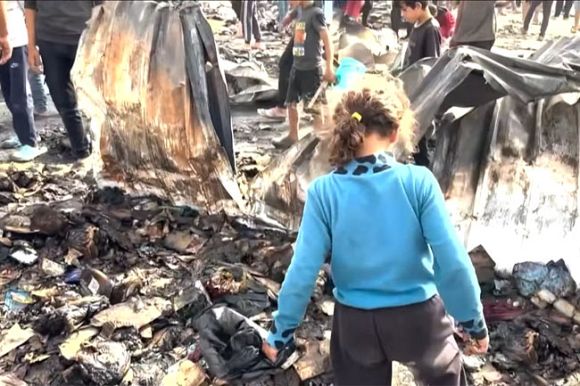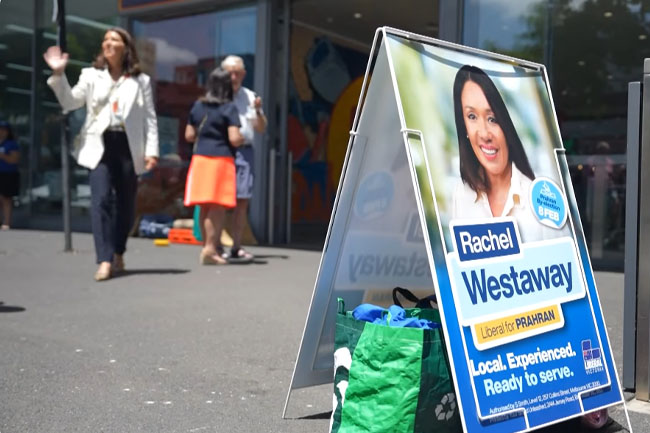Naomi Fryers' glimpse into the plight of Palestinian journalists raises questions about how war crimes against workers are going largely ignored — even by unionists.
WHILE THE Palestinian-Israel war can feel like an entire world away from some of our suburban bubble-like lives at times, the plight of journalist colleagues caught up in the conflict is one I refuse to let be lost on me.
I would also argue that others considering themselves social justice allies or unionists shouldn’t let it be lost on them either. Slain in record numbers, the attack on media professionals caught in the conflict – dead, injured and besieged – should be contextualised in the full magnitude of its tragedy.
The Committee to Protect Journalists (CPJ) has well documented that as of 27 June, 108 journalists and media workers have been confirmed killed. Those figures include 103 Palestinian reporters, two Israeli and three Lebanese.
Widespread reports have suggested the figure equates to ten per cent of Palestinian journalists having been murdered.
In a period where WikiLeaks founder Julian Assange’s freedom is celebrated around the globe, the story of journalists murdered in record numbers should signal a grave warning. Not only about press freedom and war crimes including the targeting of civilians, but also about the persecution of trained professional workers, targeted for doing their jobs.
Unionists and social justice allies should be denouncing this and protesting globally.
While the notion is universally accepted that the targeting of civilians constitutes an international war crime, an article was published by The Guardian on 25 June titled, ‘The Grey Zone’: how IDF views some journalists in Gaza as legitimate targets’.
The piece stated:
‘... an investigation by The Guardian suggests that amid a loosening of the Israel Defence Forces interpretation of the laws of war after the deadly Hamas-led attacks on 7 October, some within the IDF appear to have viewed journalists working in Gaza for outlets controlled by or affiliated with Hamas to be legitimate military targets.’
The same pieces noted that foreign media are being blocked from entering Gaza by Israel and stated that press freedom groups are expressing concerns over the violent campaign aimed at silencing critical reporting. Reporting has generally been internationally understood as not to be directly partaking in the war between parties but undertaking an important civic role in reporting on hostilities. Meanwhile, social justice allies globally are failing to decry the war criminals, the war crimes and the whole bloody war itself.
The surviving journalists in war-torn Gaza are being instructed to work in press flak jackets complete with body armour and helmets. Yet, globally, it feels as though there is a widespread hush critical of pro-Palestinian or even anti-war protesters labelled or so often as “troublemakers”.
In the West, at least, it also feels like there is widespread unspoken terror of being labelled “anti-Semitic”, a term which seems to have now been weaponised to include anyone not pacifying repugnant and rampant war crimes, including targeted slaying of Palestinian journalists.
CPJ has also pointed out that airstrikes, disruptive communications, supply shortages and power outages have made it increasingly difficult to investigate the plight of my reporter colleagues, with reports of 350 cases as yet to be confirmed.
Global news site Democracy Now has labelled attacks on journalists ‘unprecedented’ and states:
‘Gaza is the deadliest place on Earth for journalists ever recorded.’
To this end, questions must be asked about the kind of world we live in where war crimes are used as a means of silencing dissent and censorship by killing largely goes unnoticed by the masses, including many of those who consider themselves socially progressive.
July 2024 in Melbourne finds me in the fortunate position of having been focused on finally becoming a postgraduate qualified journalist. Importantly, though, having achieved what I originally set out to do many years ago, I pledge not to lose sight of why I commenced this qualification in the first place — both to tell human stories that matter and also to give a voice to people who may otherwise go stifled, quashed, ignored or unheard.
It perplexes me to ponder what kind of moral compasses allow our exclusive – if outer-suburban – chardonnay-sipping pro-union bottle of bubbles the luxury of turning a blind eye to workers being brutalised.
Is this seemingly justifiable because their reach is beyond our own convenient borders? Or has it gotten to the point that being labelled “anti-Semitic” by complete misnomer or fallacy has become so terrifying that it gives people the “opt-out” button when it comes to dissenting war crimes targeting professional workers?
In 1946, a post-war confessional prose by a German Lutheran pastor named Martin Niemöller titled ‘First they came ...’ dealt with the themes of persecution and guilt as well as personal responsibility:
First they came for the Communists,
And I did not speak out because I was not a Communist.
Then they came for the Jews,
And I did not speak out because I was not a Jew.
Then they came for the trade unionists,
And I did not speak out because I was not a trade unionist.
Then they came for the Catholics,
And I did not speak out because I was Protestant.
Then they came for me,
And there was no one left to speak out for me.
This piece still feels very relevant today.
The argument could, of course, also be made that anyone coming after journalists is also seeking to hide truths.
So, remembering that we don’t all need to be Palestinian journalists to speak up — who will? Isn’t it time that unionists and social justice allies globally walked the talk of remembering the dead and fighting like hell for the living?
Naomi Fryers is a writer, author, storyteller and journalist from Melbourne.
Related Articles
- Lockheed Martin hides Australia's complicity in Gaza bombings
- Terrorism and the Israel-Palestine conflict
- The destruction of an entire civil society on the Gaza Strip
- The perils of indifference: History repeats itself in Gaza
- Gaza: The hope for decency, democracy and compromise
 This work is licensed under a Creative Commons Attribution-NonCommercial-NoDerivs 3.0 Australia License
This work is licensed under a Creative Commons Attribution-NonCommercial-NoDerivs 3.0 Australia License
Support independent journalism Subscribe to IA.















